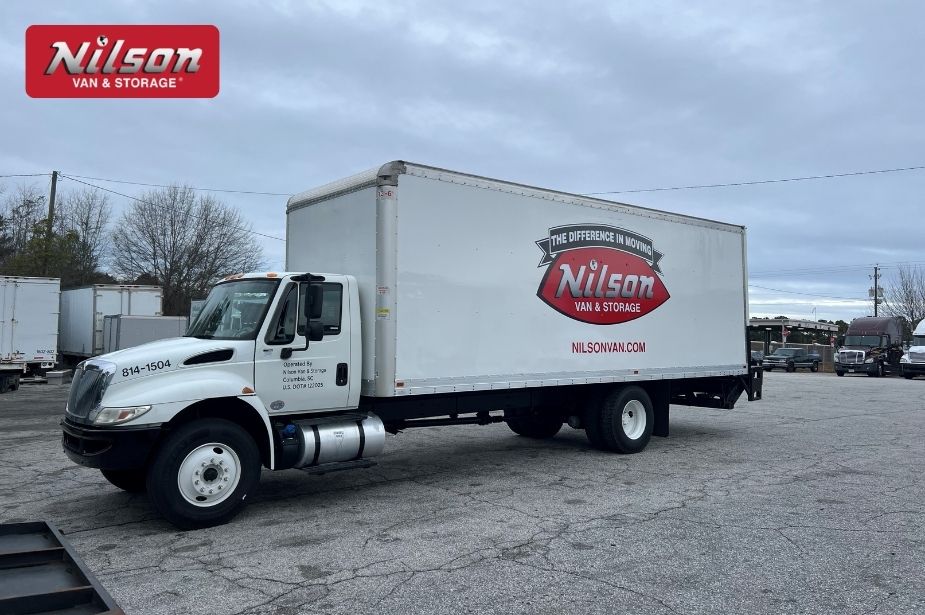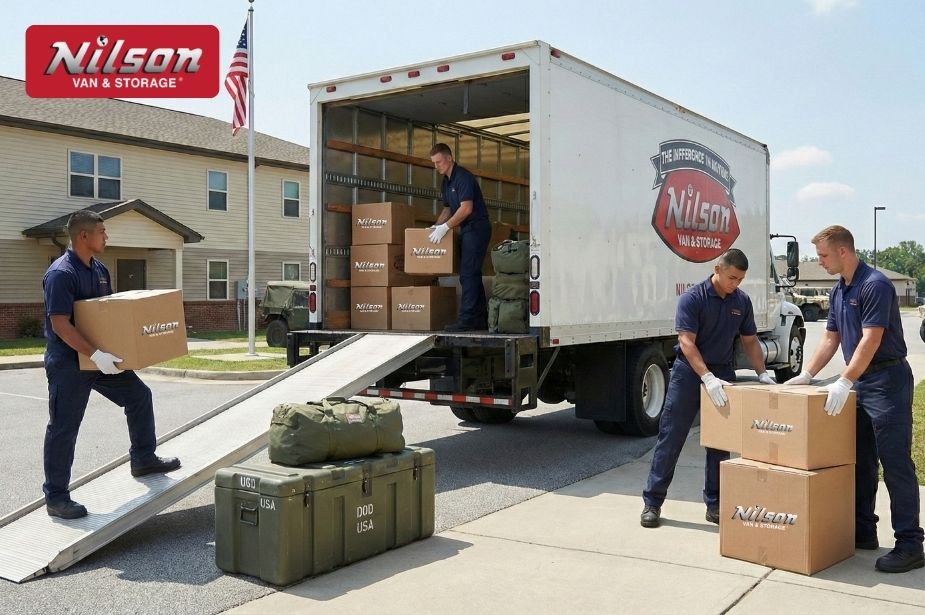Insights and Inspiration
Explore Our Blog for Expert Moving Tips and Updates
Welcome to the Nilson Van and Storage blog, your go-to resource for all things moving. From practical packing advice to stress-free relocation tips, our articles are designed to simplify your move and keep you informed. Whether you’re planning a local move in Columbia or an international relocation, explore our latest posts for insights, trends, and updates to make your journey smooth and hassle-free.
How FFE Installation in Savannah Ensures a Seamless Setup


Feb 27, 2026
How FFE Installation in Savannah Ensures a Seamless Setup
Starting a new hospitality or commercial project in Savannah comes with its unique set of challenges, especially when it involves...
Complete Guide to Moving to Tennessee from South Carolina


Feb 25, 2026
Complete Guide to Moving to Tennessee from South Carolina
Moving to Tennessee from South Carolina offers a refreshing new chapter filled with possibilities and personal growth. Whether your move...
Stress-Free Ways to Relocate to Turkey from South Carolina


Feb 23, 2026
Stress-Free Ways to Relocate to Turkey from South Carolina
Relocating to Turkey from South Carolina is a thrilling prospect, filled with opportunities for new experiences and personal growth. Yet,...
Moving Company in Columbia SC: Experts for Your Relocation


Feb 20, 2026
Moving Company in Columbia SC: Experts for Your Relocation
When planning a move, finding the right moving company in Columbia SC is a pivotal step to ensure your relocation...
Expert FF&E Logistics Solutions for the Hospitality Industry


Feb 18, 2026
Expert FF&E Logistics Solutions for the Hospitality Industry
Navigating the intricate world of FF&E logistics is no small feat, especially within the hospitality industry where every detail counts...
Moving Quotes: How to Get Accurate Pricing for Your Move


Feb 16, 2026
Moving Quotes: How to Get Accurate Pricing for Your Move
Moving can stir a mix of emotions—from the thrill of new beginnings to the challenge of organizing countless details. One...
Hospitality Moving in Columbia: FF&E Relocations for Hotels


Feb 13, 2026
Hospitality Moving in Columbia: FF&E Relocations for Hotels
Hospitality moving demands more than just relocating items from one site to another; it requires a tailored, methodical approach that...
Military Relocation Services: Efficient Solutions for TSPs


Feb 11, 2026
Military Relocation Services: Efficient Solutions for TSPs
Moving as a member of the military involves a set of challenges that civilian relocations simply don’t encounter. Military relocation...
Choose Reliable Commercial Moving Solutions for Companies in Charleston


Feb 9, 2026
Choose Reliable Commercial Moving Solutions for Companies in Charleston
Moving a business takes more than just packing up boxes—it requires expert commercial moving solutions designed specifically to meet your...
Relocation to Italy: A Complete Guide for Your Move Abroad


Feb 6, 2026
Relocation to Italy: A Complete Guide for Your Move Abroad
Planning an international move can feel overwhelming, especially when relocating to a country as culturally rich and historically vibrant as...
Movers for Military: Trusted TSP Solutions for Military Move


Feb 4, 2026
Movers for Military: Trusted TSP Solutions for Military Move
Relocating as a military service member comes with a set of challenges that differ greatly from civilian moves. These moves...
Choose Expert Office Relocation Services for a Business Move in Charleston


Feb 2, 2026
Choose Expert Office Relocation Services for a Business Move in Charleston
When it comes to relocating your business in dynamic cities such as Charleston, Columbia, Myrtle Beach, Sumter, or Savannah, partnering...
Tips for Choosing the Right Full Packing Moving Service in Columbia


Jan 28, 2026
Tips for Choosing the Right Full Packing Moving Service in Columbia
A full packing moving service is one of the most efficient ways to take stress out of any Columbia relocation....
How to Choose the Best Cross Country Movers in Charleston, SC


Jan 26, 2026
How to Choose the Best Cross Country Movers in Charleston, SC
The best cross country movers are essential when planning a long-distance relocation from Charleston, SC. A cross country move involves...
Expert Tips for Relocate to Spain from South Carolina Smoothly


Jan 22, 2026
Expert Tips for Relocate to Spain from South Carolina Smoothly
Relocate to Spain is a major life transition, and many people across South Carolina begin this journey with questions about...
Expert FF&E Installation Services for Hospitality Businesses


Jan 21, 2026
Expert FF&E Installation Services for Hospitality Businesses
FF&E installation services have become essential for hotels, resorts, and restaurants looking to complete openings or renovations without delays. Hospitality...
Military Moving Company Florida: Helping TSPs Manage Moves


Jan 19, 2026
Military Moving Company Florida: Helping TSPs Manage Moves
A military moving company supports TSPs that manage PCS relocations across Florida and the Southeastern United States, where timing, consistency,...
How Moving Companies Columbia SC Simplify Your Relocation


Jan 16, 2026
How Moving Companies Columbia SC Simplify Your Relocation
Moving companies Columbia play a much larger role in your relocation than most people realize. Whether you’re moving across town...

